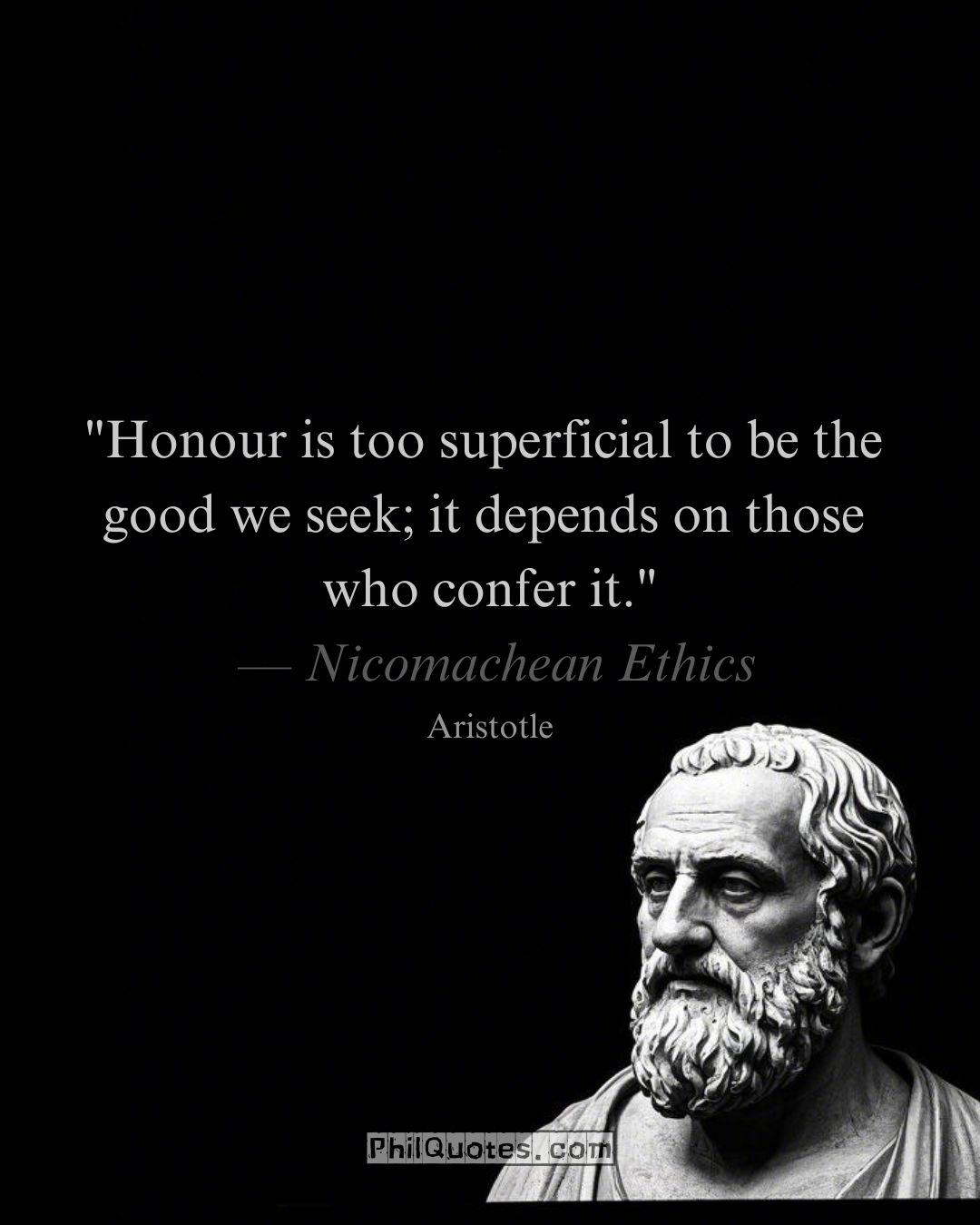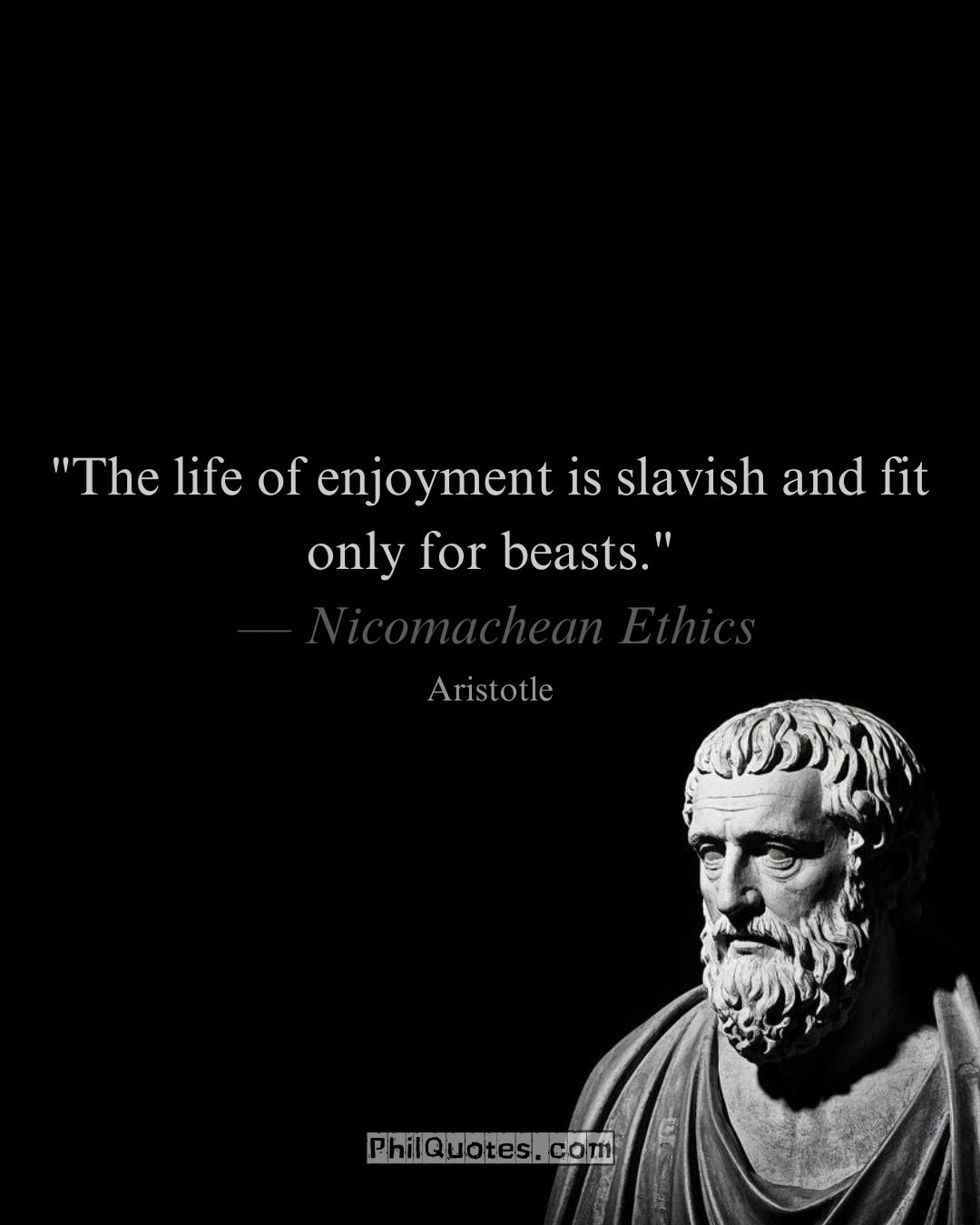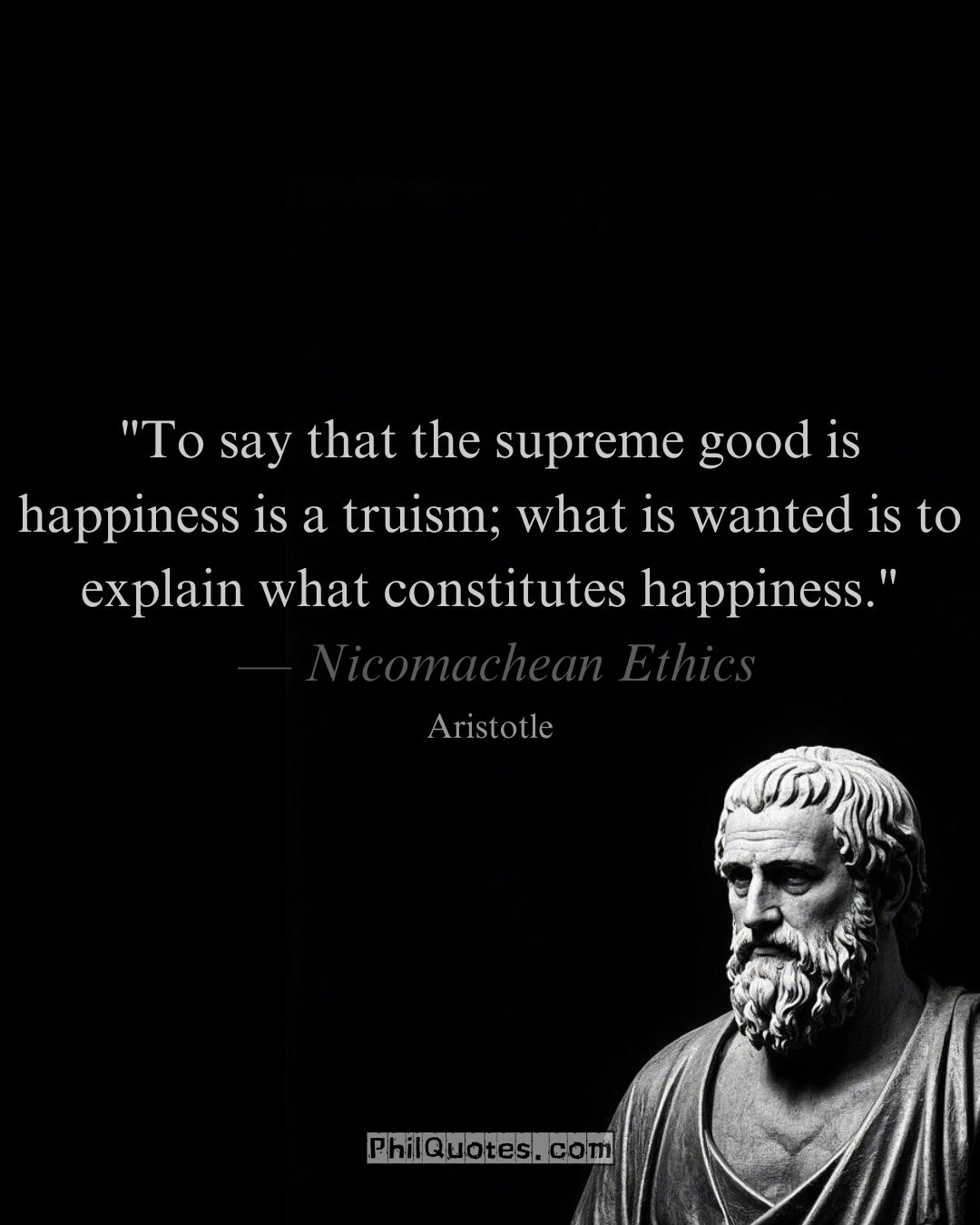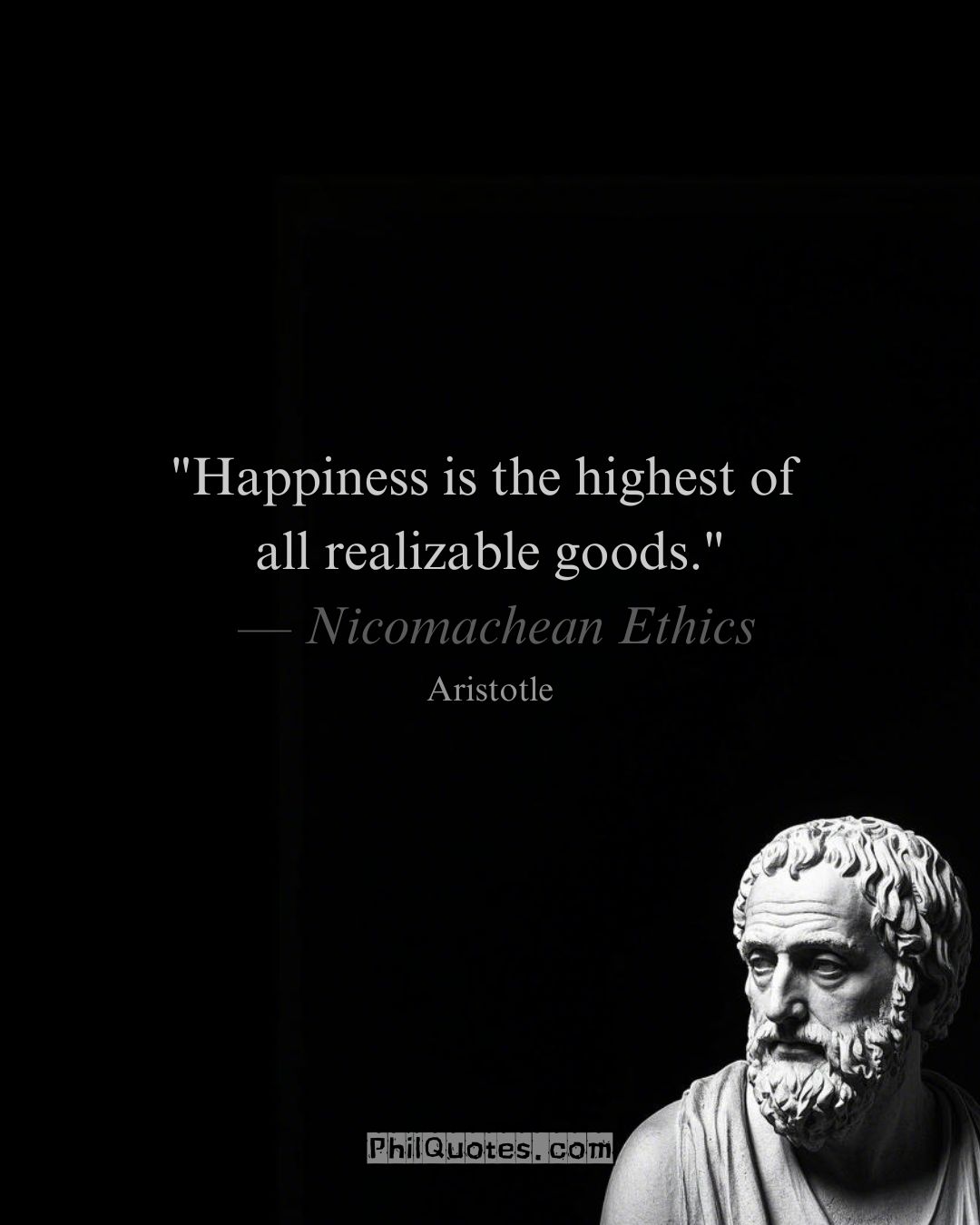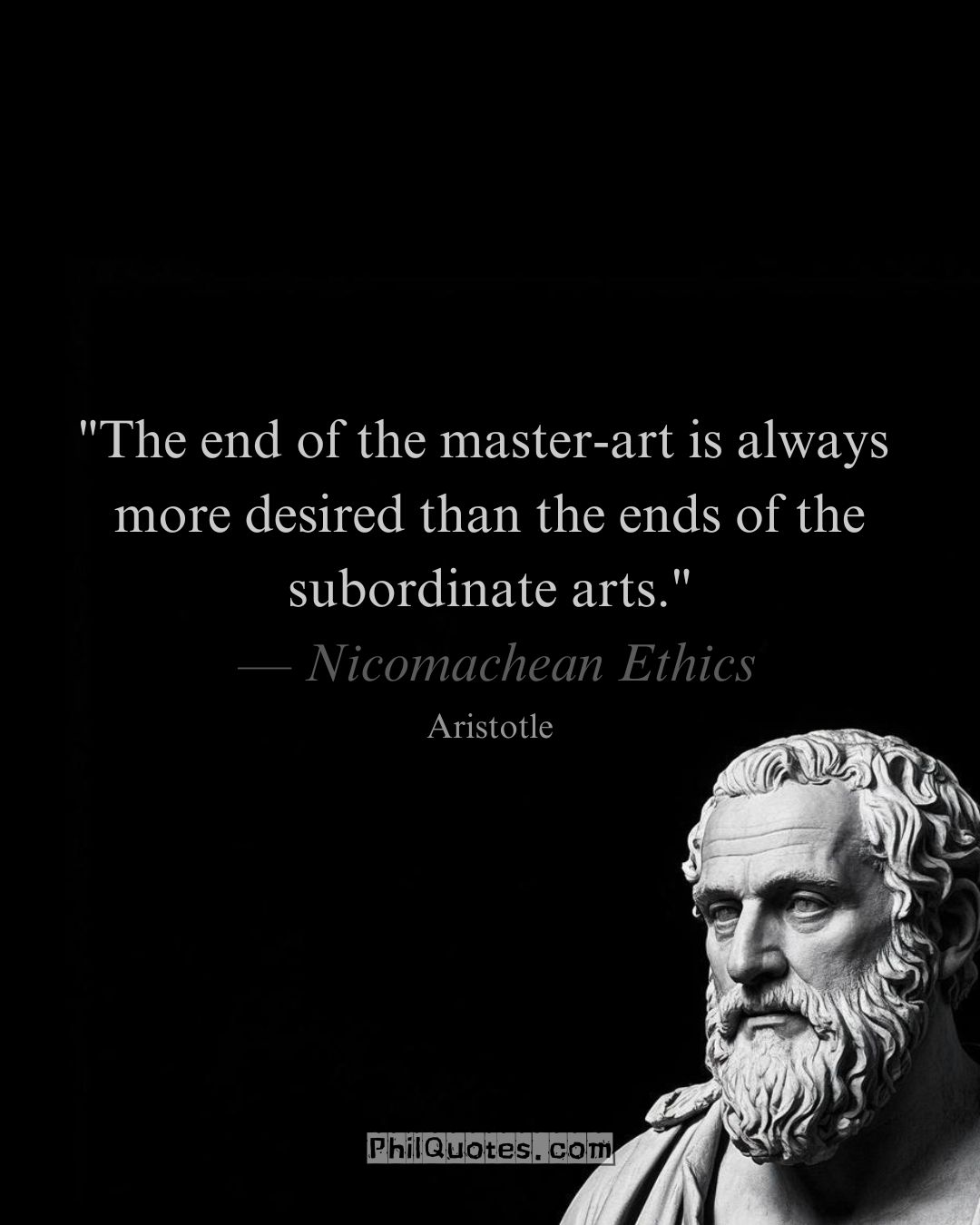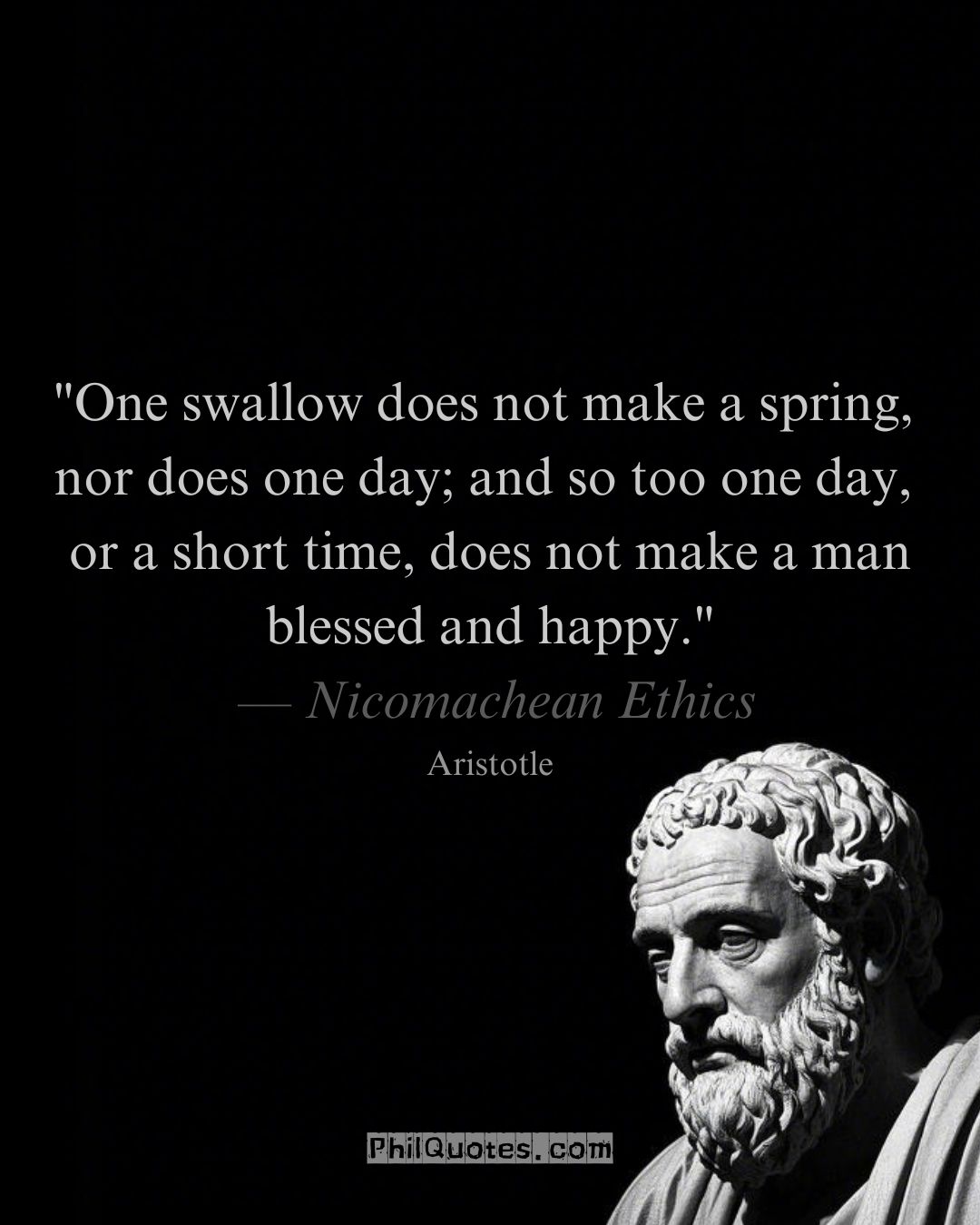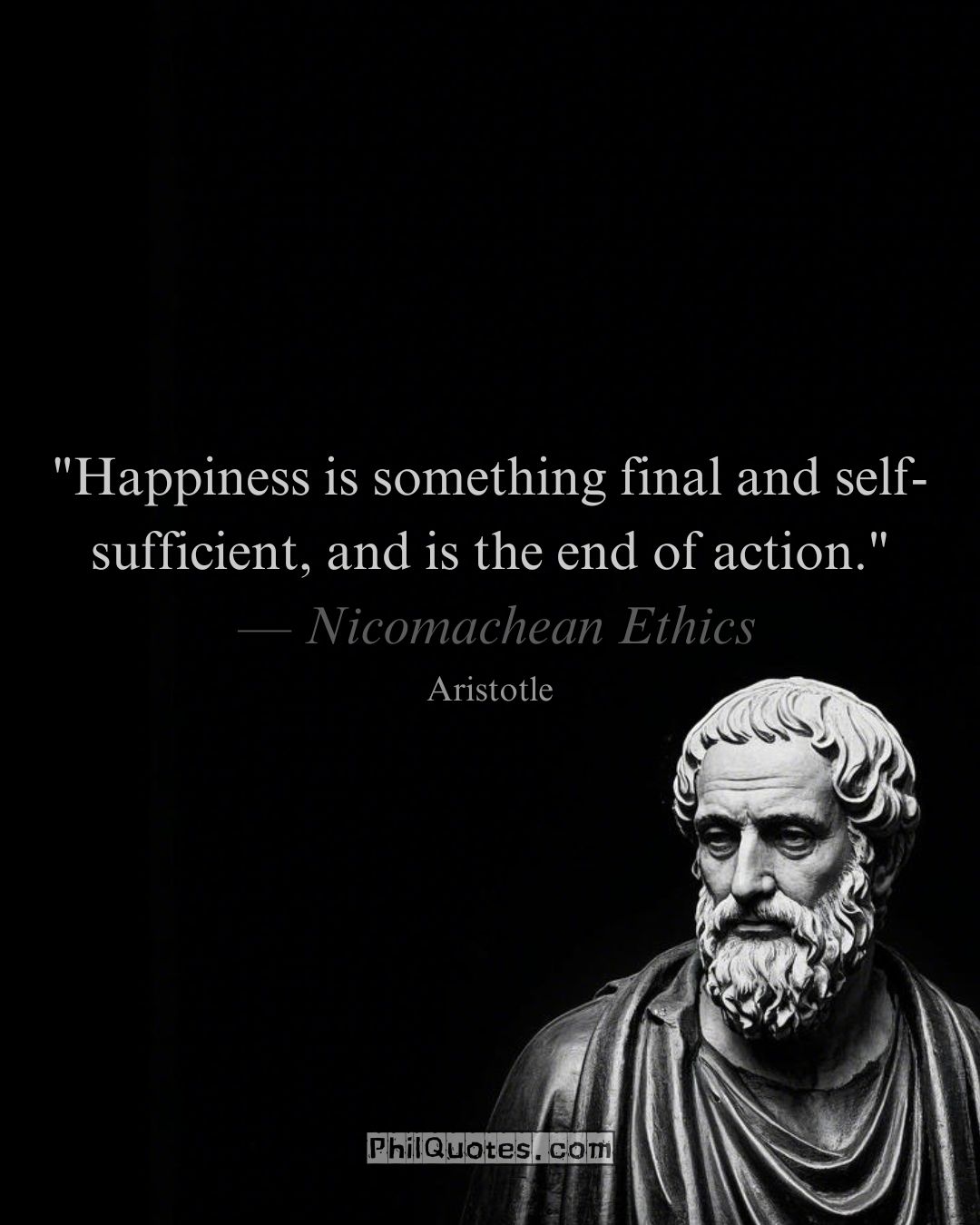Aristotle Nicomachean Ethics Quote: “Honour is too superficial to be the good we seek; it depends on those who confer it.”
“Honour is too superficial to be the good we seek; it depends on those who confer it.”— Aristotle, Nicomachean Ethics, Book I, Chapter 5 Simple Explanation:Aristotle argues that honour (praise, awards, social status) is an unstable, superficial good because its value hinges on others’ opinions. True human flourishing (eudaimonia) must be self-sufficient — rooted in … Read more
